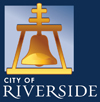Federal regulations require that CDBG funds be used for eligible activities that meet one of three national objectives:
- Benefit to low- and moderate-income persons
- Aid in the prevention or elimination of slums or blight
- Meet a need having a particular urgency
The City of Riverside uses its annual CDBG allocation to fund projects and activities undertaken by city departments and community-based non-profit agencies specifically to address the housing and community development needs of low- and moderate-income persons in the City of Riverside.

CDBG funding can be used for a variety of activities to meet HUD statutory goals including but not limited to:
Decent Housing
- Assisting homeless persons obtain affordable housing
- Assisting persons at risk of becoming homeless
- Retention of affordable housing stock
- Increasing the availability of affordable permanent housing in standard condition to low-income and moderate-income families, particularly to members of disadvantaged minorities without discrimination on the basis of race, color, religion, sex, national origin, familial status, or disability
- Increasing the supply of supportive housing which includes structural features and services to enable persons with special needs (including persons with HIV/AIDS) to live in dignity and independence; and that is accessible to job opportunities
A Suitable Living Environment
- Improving the safety and livability of neighborhoods
- Increasing access to quality public and private facilities and services
- Reducing the isolation of income groups within areas through spatial deconcentration of housing opportunities for lower income persons and the revitalization of deteriorating neighborhoods
- Restoring and preserving properties of special historic, architectural, or aesthetic value
- Conservation of energy resources
Expanded Economic Opportunities
- Job creation and retention
- Establishment, stabilization and expansion of small businesses (including micro businesses)
- The provision of public services concerned with employment
- The provision of jobs to low-income persons living in areas affected by those programs and activities or jobs resulting from carrying out activities under programs covered by the plan
- Availability of mortgage financing for low-income persons at reasonable rates using non-discriminatory lending practices
- Access to capital and credit for development activities that promote the long-term economic and social viability of the community
- Empowerment and self-sufficiency for low-income persons to reduce generation poverty in federally assisted housing and public housing
